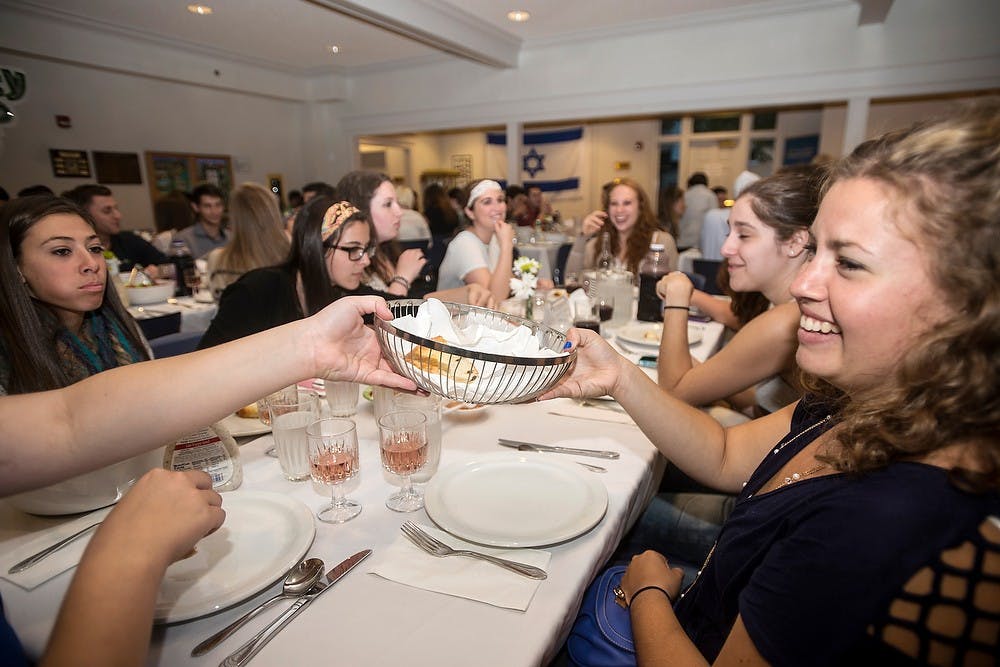Not everyone celebrates New Year’s on Dec. 31. Some people are celebrating it starting Sept. 24 this year.
Jewish communities around the world started celebrating Rosh Hashanah, the Jewish new year, on Wednesday, and the MSU Jewish community wasn’t any different. Students came out to the Lester & Jewell Morris Hillel Jewish Student Center that day to attend services and enjoy a dinner with friends.
“We celebrate (Rosh Hashanah) for two days and during those two days we’re not allowed to do any work, we’re not supposed to use our phones,” said Justin Polk, MSU Hillel program associate. “It’s a day of rest, praying, spending time with family.”
Polk said the holiday is observed starting Wednesday at sundown and goes until Friday at sundown.
“All Jewish holidays start at sundown,” he said.
Polk said other holiday traditions include dipping apples in honey, which symbolizes a sweet beginning to the year.
Rabbi Dan Horwitz, senior church educator for MSU Hillel, said another tradition is to eat challah, a type of egg bread, that is usually baked on the holiday in a circle shape to symbolize that what goes around comes around.
Horwitz said Hillel tries to provide students with a home-like atmosphere, especially during the holiday.
“Many of the students here do go home, but for those who either prefer to start because they have real essential coursework or who are not to home to go, our goal at Hillel is to have those students to feel that this is their home away from home,” Horwitz said.
Political theory and constitutional democracy sophomore Blake Isaacs said celebrating the holiday away from home was a different experience because it’s not “forced.”
“It’s weird because at home it’s forced: we’re going to services, we’re waking up early, we’re going to my grandmother’s house to have dinner,” Isaacs said. “Here it’s like you kind of come by yourself, you come with your friends; it’s kind of a different atmosphere, but I like it.”
Polk said another tradition observed is the blowing of the shofar, which is an ancient instrument.
“In the old days, we used to blow them to signify a huge event,” he said.
Horwitz said the new year is followed by The Ten Days of Repentance, which serves as a period where people can take time to work on their internal selves and ask forgiveness from people they might have wronged.
The Ten Days of Repentance are followed by Yom Kippur, during which Jewish people fast and also refrain from working.
“It’s not about outward appearances. It’s about bearing your soul,” Horwitz said.
Support student media!
Please consider donating to The State News and help fund the future of journalism.
Discussion
Share and discuss “New Year is brought in at Rosh Hashana” on social media.







